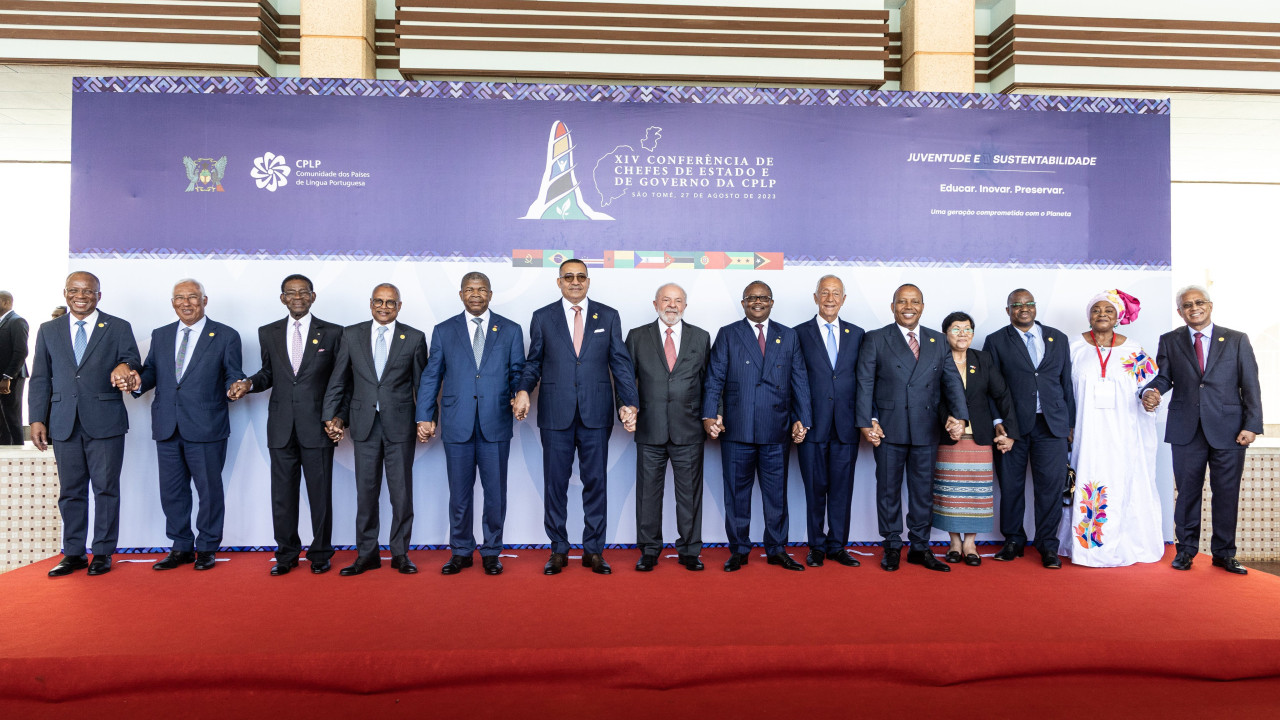
A Portuguese-speaking youth was present in practically all the speeches of the Heads of State and Government, who approved a recommendation for “youth mobility” and the promotion of “an “exchange program” to “reinforce dialogue, the exchange of experiences and network work”.
The recommendation, which came out of the 14th Conference of Heads of State and Government of the Community of Portuguese Speaking Countries, held today in São Tomé under the motto “Youth and Sustainability in the CPLP”, aims at implementing “programs and initiatives within the education, training, culture, associations and volunteering, sports, human rights and sustainable development”.
Portugal went further, by presenting a concrete proposal in this area, to be implemented within three years: the Prime Minister, António Costa, suggested the creation of an academic exchange program that allows the attendance of a semester in another country of the organization.
“That from now until 2026, we will be able to have at least one course in our different countries where we are all certified so that we can have, at the CPLP level, a frequency like the European Erasmus programme”, said António Costa in his speech at the summit, in São Tomé, dubbing this new project ‘Frátria’, in an evocation of the expression ‘Mátria’ by Caetano Veloso.
The Portuguese Government also said it was available to convert the debt of the Member States into support for the environmental transition, within the scope of the Climate and Environmental Fund, similar to what happens with Cape Verde.
Another decision that came out of the summit, and which was the most difficult to reach consensus in the last five years, was that of keeping the associated observers – now 34, with the entry of Paraguay – without paying quotas, but now obliged to develop a partnership plan with the organization.
The CPLP will have, from 2025 onwards, a reinforced budget of 3.2 million euros, after the approval of the 27% increase in Member States’ quotas.
Regarding the fourth pillar of the organization – economic cooperation -, introduced by the Angolan presidency, the States formalized the creation of a Directorate for Economic and Business Affairs, within the scope of the executive secretariat, which will have two heads and is supported by Luanda, with 400 thousand euros until 2025.
At this summit, contrary to what happened two years ago, in Luanda, it was already defined that Guinea-Bissau will succeed São Tomé and Príncipe in the rotating presidency of the organization, in 2025.
Guinea-Bissau had already expressed this intention in Angola, but the decision of the next presidency was postponed because presidential elections were taking place in São Tomé and Príncipe.
The choice would fall on this country and, last month, the Guinean President said that Bissau would no longer be very interested in occupying the position, preferring to assume the presidency of the West African Economic and Monetary Union (UEMOA).
On Saturday, the Portuguese authorities expressed support for the presidency of Guinea-Bissau, the country that would follow in alphabetical order, and which ended up being chosen today by the Member States.
Equatorial Guinea, the youngest country in the CPLP, also declared itself ready to assume the position, considering that its integration process is completed, but its claim was postponed.
Regarding Equatorial Guinea, the countries congratulated Malabo on “the abolition of the death penalty, with the entry into force of the new Penal Code in November 2022” and were urged to continue to support the country “in the new stage of its full integration process “, welcoming the results achieved so far.
The abolition of the death penalty – which has not yet been transposed into the Equatorial Guinean Constitution – and the promotion of the Portuguese language were part of the accession roadmap defined by the CPLP upon entry into Equatorial Guinea, in 2014.
The President of the Portuguese Republic, Marcelo Rebelo de Sousa, considered today that Equatorial Guinea concluded the process of integration into the CPLP, after ending the death penalty, one of the conditions of access and that it was “a decisive obstacle”.
The executive secretary, Timorese Zacarias da Costa, was reappointed for a second two-year term.
Lula da Silva interrupted the work to advance with an extra-agenda proposal: that the CPLP take advantage of the opportunity to have a Portuguese-speaking secretary general at the head of the United Nations Organization – the former Prime Minister of Portugal António Guterres -, and propose that the Portuguese language be adopted as the official language of the UN, an intervention applauded by his peers.
The CPLP comprises Angola, Brazil, Cape Verde, Guinea-Bissau, Equatorial Guinea, Mozambique, Portugal, São Tomé and Príncipe and East Timor.
Seven of the nine countries were represented at this summit by their respective Heads of State or Government – only Portugal and Cape Verde were present with President and Prime Minister. Exception for Mozambique, which sent the Minister of Health, and Timor-Leste, the President of Parliament.
Read Also: Mobility in the CPLP? Marcelo against political exploitation of critics
Always be the first to know.
Seventh consecutive year Consumer Choice for Online Press.
Download our free App.

Source: https://www.noticiasaominuto.com/pais/2388071/cplp-da-mobilidade-para-jovens-e-ao-pedido-para-um-erasmus-lusofono


